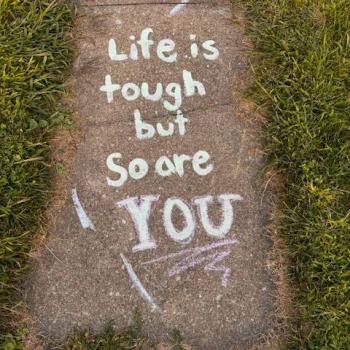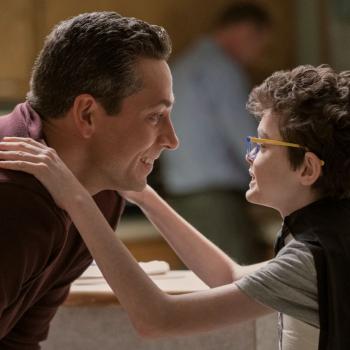 By Tresa Edmunds
By Tresa Edmunds
The future of Mormon feminism is filtered through its not-so-distant past. It's only been ten years since the last of the high-profile excommunications of prominent Mormon feminists, and the reverberations are still felt throughout our community. Even now women are circumspect in their public comments, afraid to come down definitively as feminist, cautious in their associations.
We often use the language of closeting when we refer to our feminist journey -- "Are you out?" There are many women who are crusaders in the Mormon feminist community who feel compelled to hide their identity from their family and friends out of fear of consequences, not only official church discipline (although that is a threat always at the back of our minds) but more so the loss of friendships or close family relationships that often come from the suspicion that many members feel towards feminists.
Despite that environment of fear, many of us feel that we are at the brink of a Mormon feminist renaissance. There is suddenly a resurgence of interest in the Mormon female experience -- the literary tour "Our Voices, Our Visions" featuring readings by Mormon women writers, the Women's Oral History project at Claremont Graduate University, the renewed publication of Exponent II, a much revered magazine founded in the ‘70s to "give our sisters a voice that could be heard."
This new renaissance is encouraged by two things -- the robust online community offering support and protection, and a new generation of adult women raised in a society shaped by feminism and inoculated to much of the fear and suspicion surrounding that label.
We Mormon feminists often wonder if our sisters would have been excommunicated if the internet had come into prominence ten years earlier. When they were disciplined, there were pockets of people who cared immensely, but those numbers were small in comparison to the larger church population. The majority of women did not live in Utah, Boston, or Arizona and were not academics, and were therefore largely kept apart from events. I grew up in Washington State and news slowly trickled to me through the Mormon grapevine that there were groups of harridans holding secret pagan rituals. Now that I know those harridans, I would find those stories hilarious if it weren't so tragic that their voice was so thoroughly silenced, their version of events so completely obliterated from the general record. The internet not only gives us a way to contribute to the dialogue in a way that cannot be controlled, but it connects anyone interested in women's issues. You no longer have to publish academic papers to participate. Now you can be anyone interested in talking things out with other intelligent, invested people.
I have spent the last seven years working in Young Women, the program for teenage girls. These girls give me such hope for the future of the church. To them it is common sense that women could have a career and children, if that's what they wanted. The acceptability of education is such a fact to them that many of them cock their heads at me as if I'm speaking a different language if I hint at a time when that wasn't so. These women have grown up in a world where they were nearly equal in many ways to their male peers. To suggest otherwise is almost blasphemous to them. Many of them have become adept at interpreting statements from general authorities to fit their viewpoint, secure in themselves and what they want out of the world, and assuming that everyone else feels the same way.
But I have also watched, over and over again, as these bright lights eventually come up against something they can't incorporate and they have to make a choice. Do they shrink themselves down and become less to fit in the prescribed role, or do they turn away from what they have been taught? My heart has broken as I watch these girls I love like daughters walk away because they can't find a way to fit in. We have no access to firm numbers, but based on the anecdotal evidence, we are losing this generation of young adults at shocking rates. And while the reasons may be manifold, I am firmly of the belief that it's because the vision we give them of their future is not a future they want.




